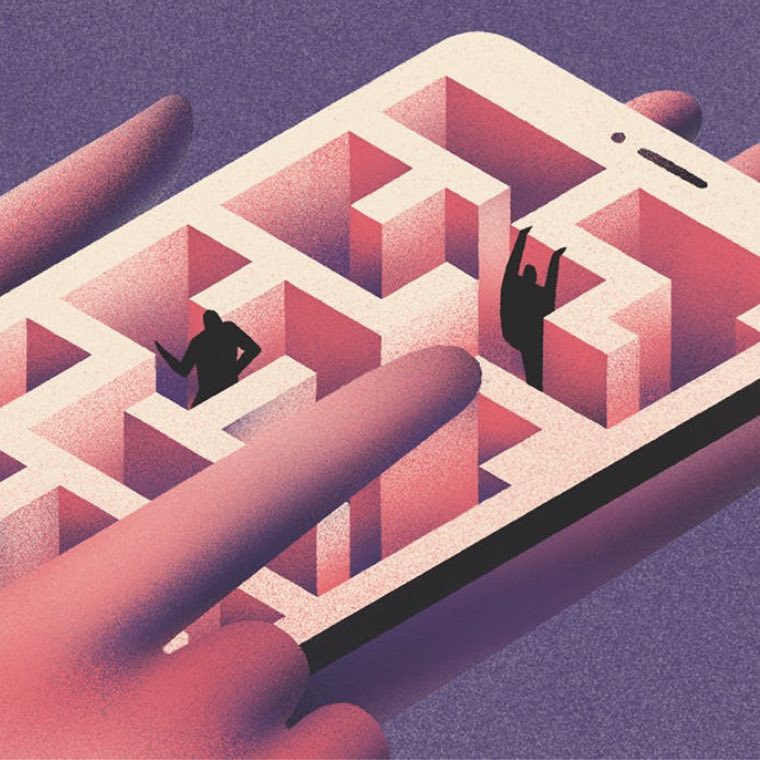
Social media
"I learned everything I know from YouTube, including the things my teacher failed to teach me"
August 2020The internet has changed every single aspect of our lives. We all know that. Education, in particular, has changed drastically thanks to the World Wide Web. The classroom has transferred from the well-respected walls of schools, universities and libraries to the at-home computers and iPad screens and all the way to simpler mobile devices reliant on the unreliable internet signal found, or rather barely found, in remote rural areas. As long as there is access to the miracle that is the internet, be it in 5G-rapid or 3G-lethargic speed, then there is access to information. However, having access to information is not what matters most, is what we do with such information that makes the difference. That is the most significant shift in the contemporary classroom, it is not in infrastructure or format, but rather in attitude. Today, we have a young generation which grew up with the internet. A generation which proactively seeks information online and does not only passively consume it like generations prior. A generation which has turned Youtube into something more than an entertainment platform — a virtual space for learning, a new classroom filled with interactive, unorthodox and colourful didactic videos. For Gen Z’s and Gen Alphas YouTube might as well be called The Royal School of YouTube.

YouTube has everything
Many adults might underestimate the type of content that GenZ and Gen Alpha seek for on YouTube. They probably presume that these youngsters are at best vapidly sapping through gaming videos. We interviewed a group of kids and teens between the ages of 10 and 18 to learn more about their relationship to social media and particularly with YouTube. And, even though we found there was indeed a devotion for gaming videos which even included watching videos of other people gaming, what truly surprised us was that all of them had learned something on YouTube, be it a craft, a new skill or complex academic theory. What they loved the most about the platform is that it has everything. Every possible interest or burning question they might have ever had could most likely be answered in a tutorial or TED Talk.

A more democratic and more personal way of learning
Another aspect of YouTube these youngsters are drawn to is that it feels honest and real, “unedited” by comparison to the content on platforms such as Instagram and Netflix which feel much more curated. This sense of “realness” also bleeds into teaching and learning on YouTube. Learning feels more democratic and personal in the platform as archaic professors are replaced by peers, free thinkers, independent agents turned vloggers and influential YouTubers. And, unilateral monologues between professors and students are replaced by more animated and interactive dialogues between YouTube content makers and curious followers. This generation has a DYI attitude about life and about learning. A “why not?” rather than a “what if?’ approach that is unafraid of trial and error and refuses to believe that learning should be linear and rigid.

A generation that won’t wait for the adults
One thing to bear in mind is that these kids and teens are not naive about YouTube. On the contrary, they are conscious of the platform’s negative sides such as its addictive qualities and toxic comment sections rife with cyberbullying. These kids are a smart bunch and they are willing to take the web with its good and its bad. They do so for the sake of endless entertainment, but also for the sake of endless open sources of knowledge and learning possibilities. This is a generation that does take the internet for granted, they want to use it and get their hands dirty with it. They are not going to wait for adults to answer their questions, they will search for them themselves. The Royal School of YouTube has provided these kids with something that traditional school was never fully able to, Play & Learn in the same place, at the same time.

A special thanks to all the bright youngsters who were part of our interviews for their insights, energy and time. From Berlin to São Paulo, Thank You to Lara, Fausto, Lula, David, Thalia, Theo, Mar, Iris and José.
